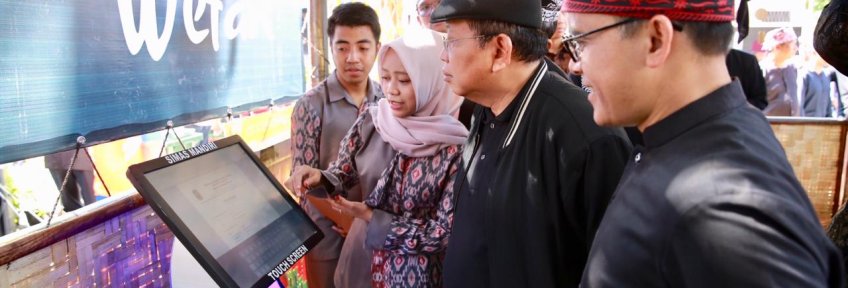Innovative response
Like many other districts throughout Indonesia, Banyuwangi District in East Java has been hit hard by COVID-19 on both the health and economic fronts. The district has been a burgeoning tourism location in recent years; with the pandemic, tourists have all but disappeared from Banyuwangi.
Banyuwangi has been implementing the Smart Kampung (Smart Village) program for a number of years now, increasingly integrating technology and the internet into public services. In response to the COVID-19 pandemic, the Banyuwangi District Government decided to incorporate social welfare support programs into Smart Kampung as well, to ensure that poor and vulnerable families received the financial support they needed. The system also allows for residents to inform the government if they or other families require assistance.
Specific issues addressed and anticipated impact
The integration of social welfare support programs into Smart Kampung ensures that financial help goes where it is needed. In other words, there is accurate distribution of welfare and, crucially, no doubling-up of support payments. Families who have already received support are recorded in the Smart Kampung system, and any repeated attempts to assist said families will be automatically rejected by the system.
290,000 families have been recorded in the Smart Kampung system, and input and verification of data is now much faster and more accurate than the previous manual paper-based system. Recipients of welfare support are recorded by name, address, and national identification number (NIK).
For transparency, the names of families who have received support are also displayed on community information boards. This ensures there is no secrecy surrounding the procedure and distribution, as this is something that has led to conflict in the past.
Organisations/institutions involved
This solution is a collaborative program from Banyuwangi District Village Community Empowerment Office and Banyuwangi District Communication and Information Office.
Potential issues
Some village government staff lack the capacity required to implement the digital elements of Smart Kampung, leading to inaccuracies.
Conflict can still occur when distribution of social welfare is not carried out simultaneously, as some residents may feel jealous or concerned that they have not yet received assistance when others already have.
Some data entry issues have occurred, such as when families have not received assistance but are incorrectly recorded in the system as having already been helped.


